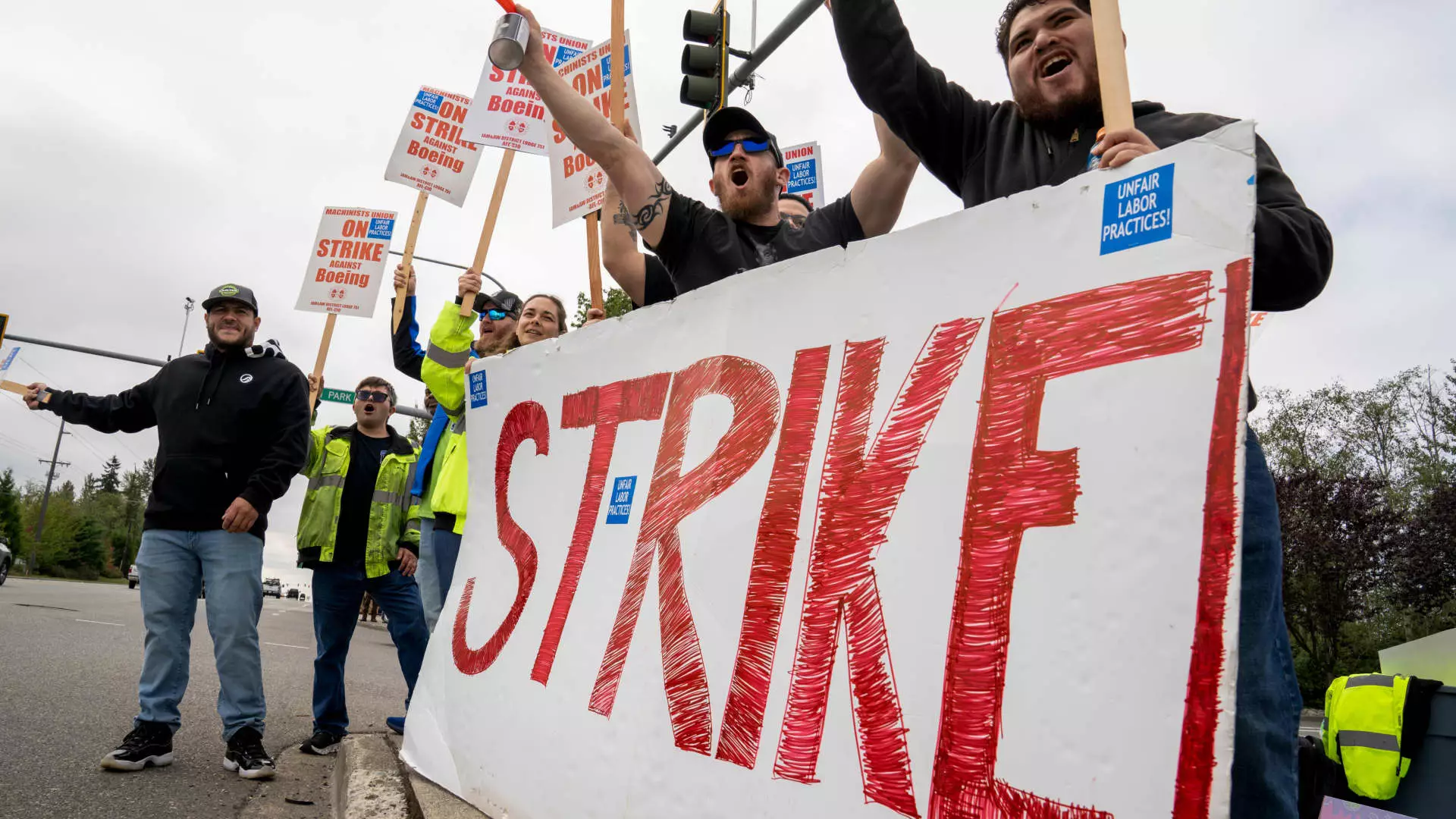As Boeing’s machinists enter the second week of a significant strike, the aerospace giant finds itself at a critical juncture. Approximately 30,000 workers have halted production, showcasing the immense power and unity of organized labor. This ongoing action is not just a plea for better wages but a reflection of the larger issues surrounding job security and living costs in an economically volatile environment. With the stakes rising, Boeing has attempted to navigate this tumultuous landscape by offering a revised contract proposal.
In an effort to quell the unrest, Boeing presented its “best and final” proposal, aiming to boost salaries by 30% over the next four years, an increase from an initial 25% offer. Additionally, the offer included a substantial ratification bonus of $6,000—doubled from previous figures—along with reinstating annual bonuses and enhancing the company’s 401(k) match. However, this strategic play comes under the scrutiny of the International Association of Machinists and Aerospace Workers, which is currently analyzing the offer. Union leadership believes the proposal reflects Boeing’s awareness of their potential to do better for workers, aligning their compensation more closely with the rising cost of living, particularly in the Seattle area.
Financial analysts, such as those from Bank of America, have highlighted the strike’s repercussions, estimating it costs Boeing an astounding $50 million daily. This figure underscores the urgency for a resolution, especially for new CEO Kelly Ortberg, who faces mounting pressure to settle the strike that marks the first significant action since 2008. As the industrial standoff drags on, it risks further implications for the company’s credit rating and financial stability, as noted by various ratings agencies.
In the face of financial pressures, striking machinists have voiced strong dissatisfaction with previous contract proposals. A staggering 94.6% voted against an endorsement from union leadership, signaling a deep-seated discontent among workers regarding compensation that has failed to keep pace with inflation. Reports from the picket lines in Renton, Washington, highlight the resolve of workers, many of whom are opting to take on side jobs to make ends meet during this prolonged strike. This determination speaks volumes about the collective action taken against an entity that has historically been viewed as a pillar of American industry.
As negotiations continue, both parties will need to weigh the implications of their decisions. While Boeing seeks to restore stability and unity within its workforce through increased compensation, the machinists seek recognition for their contributions to the company’s success. This standoff may well define the future of labor relations at Boeing and serve as a case study for other industries facing similar challenges. Not only is this strike pivotal for the immediate economic health of the company, but it also poses deeper questions about the balance of power between major corporations and their employees in an era of rising cost of living and economic uncertainty.


Leave a Reply